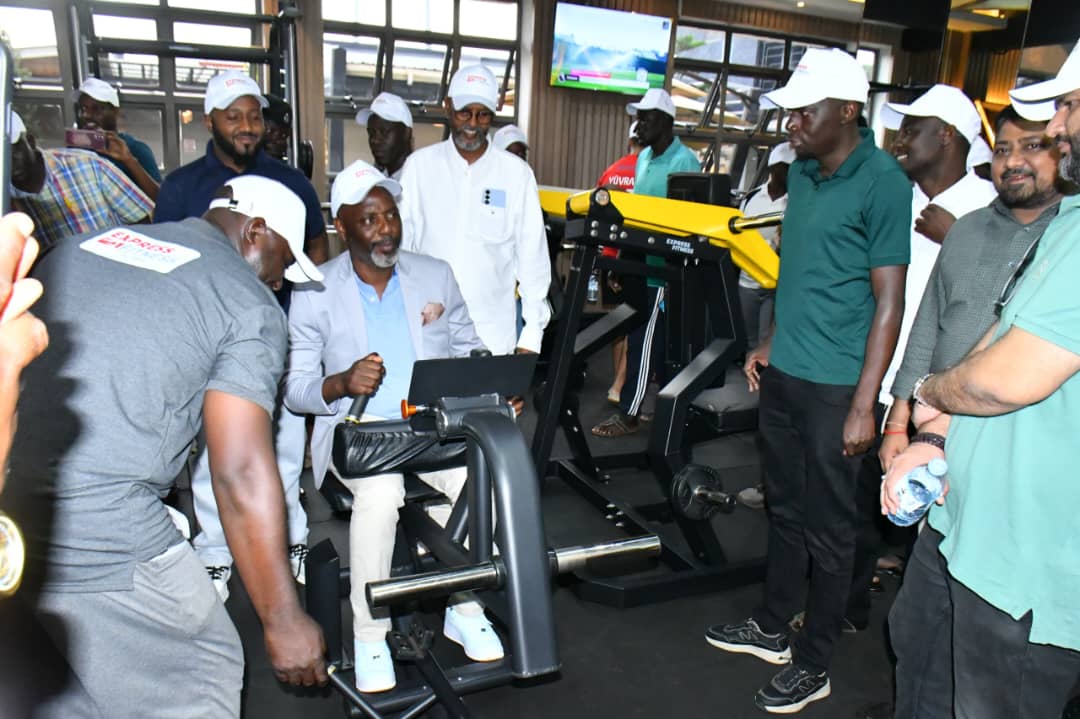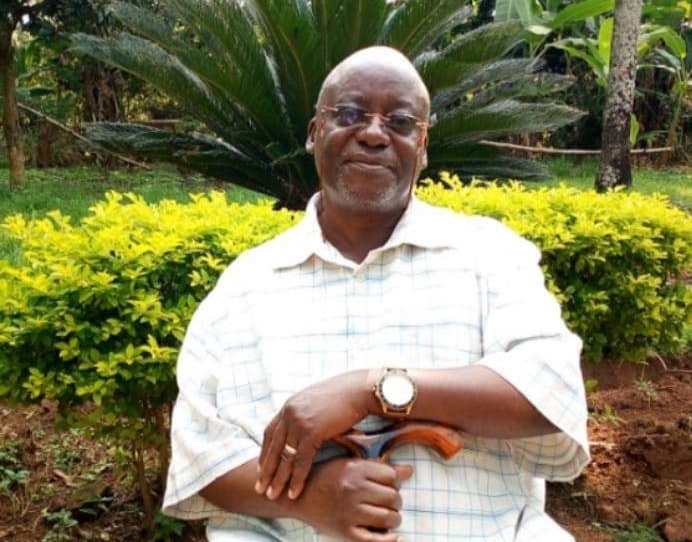Officials and experts from the National Planning Authority (NPA)will very soon pitch camp in Jinja City to restore sanity to ensure that developments are compatible with the relevant laws and regulations in Uganda.
The Executive Director (ED)NPA Dr Joseph Muvawala made the big announcement saying all service lanes and roads that have been closed over years must be reopened without further ado.
He made reference to an earlier order issued last year by the NPA which was seen by some people in Jinja City as a direct attack on the interests of some powerful individuals who were backing a section of youths who had established illegal kiosks.
The lane in question links Clive Road West with Nizam Road West and serves St James Secondary School, Total energies Limited and Oil Com fuel refilling stations and Tata Owen Supermarket, among others.
Dr Muvawala who is also the Busoga Kingdom Prime Minister (Katukiro) was speaking as guest of honor at the inaugural ceremony of a multi-billion shillings Health and Wellness Centre called Express Fitness Centre situated along Lubas Road in the Central Business District (CBD) of Jinja City.
The facility belongs to the Busoga Kingdom Second Deputy Prime Minister Hajji Noor Ahmed Osman who doubles as the Head of Partnerships at the Bugembe Town Council-based kingdom headquarters.
Hajji Osman told his guests that the fitness center has the state-of-the-art latest brand of equipment imported from outside and that he hired experts to help in the design and installation of the 142 equipment.
This is one of the best facilities which is rated as the best in Uganda and East Africa.
“…As the head of NPA we have already issued an Order and in November I will be coming with officials to ensure that the order is implemented to make Jinja which is our capital city lives to the status of a city…”, he said.
This revelation is likely to send cold shivers on the spines of some officials especially the technical wing at the Jinja Town Hall who are accused of having ‘sold’ some roads to individuals and investors claiming the affected roads had outlived their usefulness.
He also used the occasion to challenge the leaders and residents in Busoga to focus on critical things that are necessary for the growth and development of the sub region which boasts of 4.5 million people, according to the latest data from Uganda Bureau of Statistics (UBOS).
Addressing himself on the new facility Muvawala slams at some negative sectarian overtones by some elements who focus more on sectarian sentiments of ethnicity, origin, religion and others saying diversity brings diversity in new ideas and perspectives adding that Busoga is not defined by the language but by the geography.
“…and today as we unveil this facility its worth taking note that not many people from outside will develop the region and so the people who come to this region of diversity, we must embrace unity in diversity because people come with business acumen…”, he stressed.
He saluted Hajji Osman for injecting his family resources to add value to Jinja City and challenged others to emulate saying the city is now metropolitan in n nature and requires more amenities.
Dr Joseph Muvawala who was in high spirits shaking hands with nearly everyone, also asked the city dwellers to take advantage of the facility to fight Non-Communicable Diseases (NCDs) like cardiovascular diseases, stroke, hypertension or blood pressure, diabetes 1 and 2, mental health conditions, obesity and others which have become a menace in Uganda.
The PhD holder in Economics from Makerere University with experience in development practice and policy formulation said Jinja did not attain its city status because it merited but that it was a result of proclamation, adding it’s time to ensure the status shines in practicality.
He expressed concern that fuel refilling stations commonly referred to as petrol stations have become more like maize roasting where anybody wakes up in the morning and sets up one.
It should be noted that its now one of the commonest features next to boda-boda motorcycles in Jinja City where after every 10 meters there is a fuel refilling station even in wetlands most without the required Environment Impact Assessment (EIA)reports.
The NPA boss has sent a clear message that this unregulated kind of development must stop and be aligned with the Physical Planning Act and other policies and regulations.
Background:
As can be recalled, Dr. Muvawala in his May 2024 letter addressed to the Permanent Secretaries of the Ministries of Local Government and Lands, Housing, and Urban Development, highlighted the illegal construction of kiosks in urban service lanes across the country, including Jinja City.
The letter specifically instructed the then Jinja City Town Clerk Edward Lwanga to demolish illegal kiosks obstructing service lanes, starting with those near St. James Secondary School and Oil Com fuel station in the East, as well as commercial buildings and Total Energies fuel station in the West.
“…I have observed with concern that the above physical development plans have not been adhered to in Jinja City and other urban areas…,” Dr. Muvawala wrote in the letter dated 23 May, 2024.
The directive triggered controversy prompting the affected NRM-leaning youth in Jinja, who accused some city leaders and politicians of receiving bribes from some wealthy business proprietors and landlords to frustrate them.
What You Need To Know:
To establish a fuel refilling station or petrol station in Uganda a developer must take some key considerations regarding Environmental Impact Assessment (EIA)Report. An EIA report is required for petrol stations to assess potential environmental impacts such as air and water pollution, noise and soil contamination.
This report, according to experts should include measures to mitigate these impacts, like proper waste disposal and fuel storage tank design.
The National Environment Management Authority (NEMA) reviews and approves EIA reports ensuring compliance with environmental standards.
Proximity To Residential Areas: petrol stations should maintain a safe distance from residential areas, schools and other sensitive locations to minimize risks.
The Uganda National Bureau of Standards (UNBA) and NEMA regulate the sitting of petrol stations considering factors like population density and environmental sensitivity.
Some petrol stations in Jinja and Kampala have been noted to be non-compliant with standards highlighting the need for strict enforcement. The National Environment Act (NEA) Cap 153 and the Environmental Impact assessment Regulations (EIA) govern EIA processes in Uganda.
The Petroleum Supply Department at the Ministry of Energy and Mineral development also plays a role in regulating petrol stations.
Do you have a story in your community or an opinion to share with us: Email us at Submit an Article







